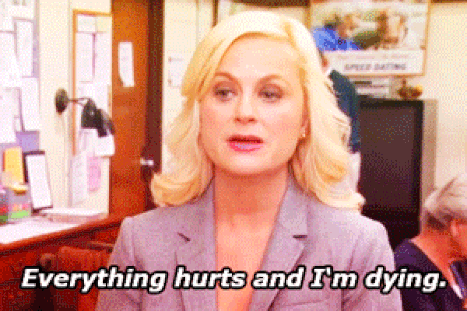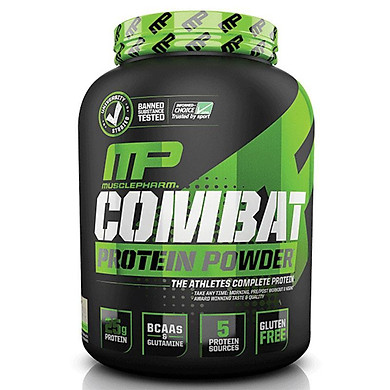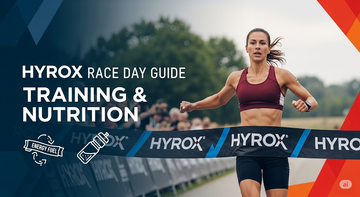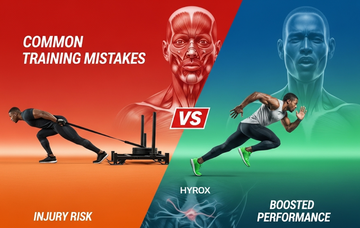Going through a process of intense training can cause muscle aches. So, look at these hacks for muscle soreness so you can speed up recovery after workout?
Why Do You Need Muscle Recovery After Workout?
Muscular recovery usually takes from 24 to 48 hours. In that period of time, muscles will be repaired and rebuilt. Continuous training earlier simply leads to muscle tissue breakdown. That's why post-workout recovery is important, especially after a high-level, intense performance.

The process of recovery plays a very important role in stimulating full muscle growth for the next training session. If you do not want your muscles to shrink, then the following muscular hacks below are highly recommended.
Muscle Recovery After Workout With These Useful Tips
Rehydration
Sweating while exercising means you lose a lot of water, which increases your muscle fatigue and loss of coordination. In order to boost your recovery, replacing lost fluids is the easiest way.
Containing 75 percent of water, lean muscle tissue could be easily fatigued when your body lacks water. Thus, if you want to avoid declining in performance during working out, take a sip of water whenever your muscles feel tired.
As water improves every bodily function, just make sure to increase your water intake at the right times. Drink before, during and after exercise. Do not only focus on having water before training and forget to do it afterward. Also, only drinking water when you’re thirsty is a bad habit for many gym-goers.
In case you want to look for a solution to water shortage in your body, try BCAA Platinum Amino Plus Energy. This product consists of free branched chain amino acid (BCAAs), taurine, L-glutamine, L-arginine and electrolytes, which helps rapid absorption.
With a precise electrolyte complex, BCAA Platinum Amino Plus Energy is worthy of your health investment. Besides, BCAA also supports post-workout recovery, fights muscle destruction, and boosts protein synthesis.

Get Enough Sleep
There is a real bonding between sleep and muscle growth. Deep sleep, as known as non-REM sleep, is crucial for muscle recovery. While your brain rests with rarely activity, your muscle will see an increase in blood flow with extra amounts of oxygen and nutrients, which stimulates the process of recovery.
At the higher stage of non-REM sleep, Growth Hormone will occur and facilitate muscle tissue growth and reduce muscle aches. So, a 7-9 hour sleep is totally important. Get to sleep and stop harming yourself because sleep improves muscle recovery after workout.
But what to do if you cannot sleep well? Don't worry, because Natrol Melatonin is here to save your dream. Melatonin - a hormone naturally produced by the brain - is the special ingredient that regulates other hormones, helps you fall asleep faster, and maintains the body's biological clock.
Massage It Out
A quick massage is a hack to reduce muscular soreness. Not only does massage make you feel comfortable but it also speeds up recovery post-workout.
Also, studies found that body treatments like massage (also ice baths for example) can reduce inflammation or injury of sore muscles. These are good for muscle growth, too. The secret lies in their ability to constrict and dilate the blood vessels, which helps flush out waste products in muscle tissues. Hence, limp up to the massage tables right away after a long, vigorous training session will be a good treat for your body.

Skip The Booze
The synthesis of protein can be interfered strongly by alcohol, resulting in messing up the process of recovery. Drinks with 4% alcohol ingested after exercise will cause an increase in urine output and a delay in the recovery rate of blood volume.
Moreover, alcohol consumption is regarded as a way to decrease sleep duration and make gym-goers eat less healthy food. With these negative influences, a hangover on a training session is definitely not a good choice. Plus, alcohol causes dehydration, which is one of the things that we’re trying to avoid the most.
Reschedule Your Workout Plan
Because of continuous and too frequent training, overreaching syndrome may ensue, which causes your muscles tissues to break down, then puts your body into a fatigued state. Worse yet, it can lead to several physiological and chemical changes. To prevent this situation, plan a recovery week, perform less volume and leave the gym with an energized and satisfied feeling. Why over work if it makes you feel horrible, right?
Protein Intake
Protein shakes are typically suitable for gymers since it gives your muscles a quick shot of amino acids to jump-start recovery, while also helping you meet your total protein requirement. It helps magnify the impact of the exercise by providing the body the necessary protein that will aid your body in the process of repairing the body after workout.
There are many types of protein supplements available in the market for you to choose. However, MusclePharm Combat Protein Powder is a must-have for every gym-goer due to its benefits: improve glutamine, fiber and provide blend of five different proteins:
- Whey protein hydrolyzed: includes many small amino chains absorbed quickly into the body. The fastest absorption of protein molecules into the blood will supply the amino acids (building blocks of protein) immediately in muscle growth.
- Whey protein isolate: the most powerful protein that quickly absorbs into muscle cells, reduces muscle aches, increases immunity, and protects the body during intense exercise.
- Whey protein concentrate: helps in muscle development and increases immunity, like Alpha-Lactoglobulin and Lactoferrin.
- Egg albumin: Egg protein with good absorption containing very high content of natural bcaa and arginine.
- Micellar casein: has a very slow absorption rate, protects the body from protein deficiency and avoids the breakdown of muscle cells into energy.

We’ve just gone through 6 tips that I found would be very helpful whatever you do in the gymnasium. I hope these tips will be useful for those who want to find some hacks for muscle recovery post-workout. Tell your friends!










